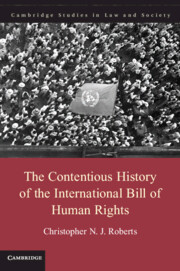Book contents
- Frontmatter
- Contents
- Preface
- Acknowledgments
- Introduction
- Chapter 1 What Are Human Rights and Where Do They Come from?
- Chapter 2 From War and Politics to Human Rights: The Cold War and Colonial Recession
- Chapter 3 Protecting State Sovereignty from the “Dangers” of Human Rights
- Chapter 4 Saving Empire: The Attempt to Create (Non)-Universal Human Rights
- Chapter 5 A Human Rights Treaty that Permits Lynching?
- Chapter 6 The United States’ Unequivocal Ambivalence toward Socioeconomic Rights
- Epilogue
- Index
- References
Chapter 4 - Saving Empire: The Attempt to Create (Non)-Universal Human Rights
Published online by Cambridge University Press: 05 November 2014
- Frontmatter
- Contents
- Preface
- Acknowledgments
- Introduction
- Chapter 1 What Are Human Rights and Where Do They Come from?
- Chapter 2 From War and Politics to Human Rights: The Cold War and Colonial Recession
- Chapter 3 Protecting State Sovereignty from the “Dangers” of Human Rights
- Chapter 4 Saving Empire: The Attempt to Create (Non)-Universal Human Rights
- Chapter 5 A Human Rights Treaty that Permits Lynching?
- Chapter 6 The United States’ Unequivocal Ambivalence toward Socioeconomic Rights
- Epilogue
- Index
- References
Summary
Introduction
Today, the view espoused in countless international treaties, charters, and declarations that human rights are a universal good, fundamental to human existence, enjoys widespread support in what has been called a new global “secular religion.” Though as in any other religion, there are competing interpretations that challenge the universality of the concept and the provenance of the doctrine. There is, for example, the argument that human rights are not universal, but are Western concepts that arise from Western liberalism. This position views human rights as one of many projections of Western power and authority, a modernized form of imperialism under ideological cover. But like a religion, the a priori assumptions that animate such positions can be argued indefinitely, but proved neither right nor wrong. Regardless of the substance of such arguments the question remains: Is human rights a universal concept or is it a Western creation?
Interestingly, a very similar conflict over the universality of human rights occurred during the concept’s postwar moments of origin. But contrary to the contemporary debates, it was the smaller and non-Western states that held human rights to be universal and Great Britain that viewed them as a limited concept.
As a set of rules for delineating appropriate social, political, and economic relationships between states and among their populations, after World War II , human rights held promise for the hundreds of millions of people who then lived in colonial dependencies.
- Type
- Chapter
- Information
- Publisher: Cambridge University PressPrint publication year: 2014

